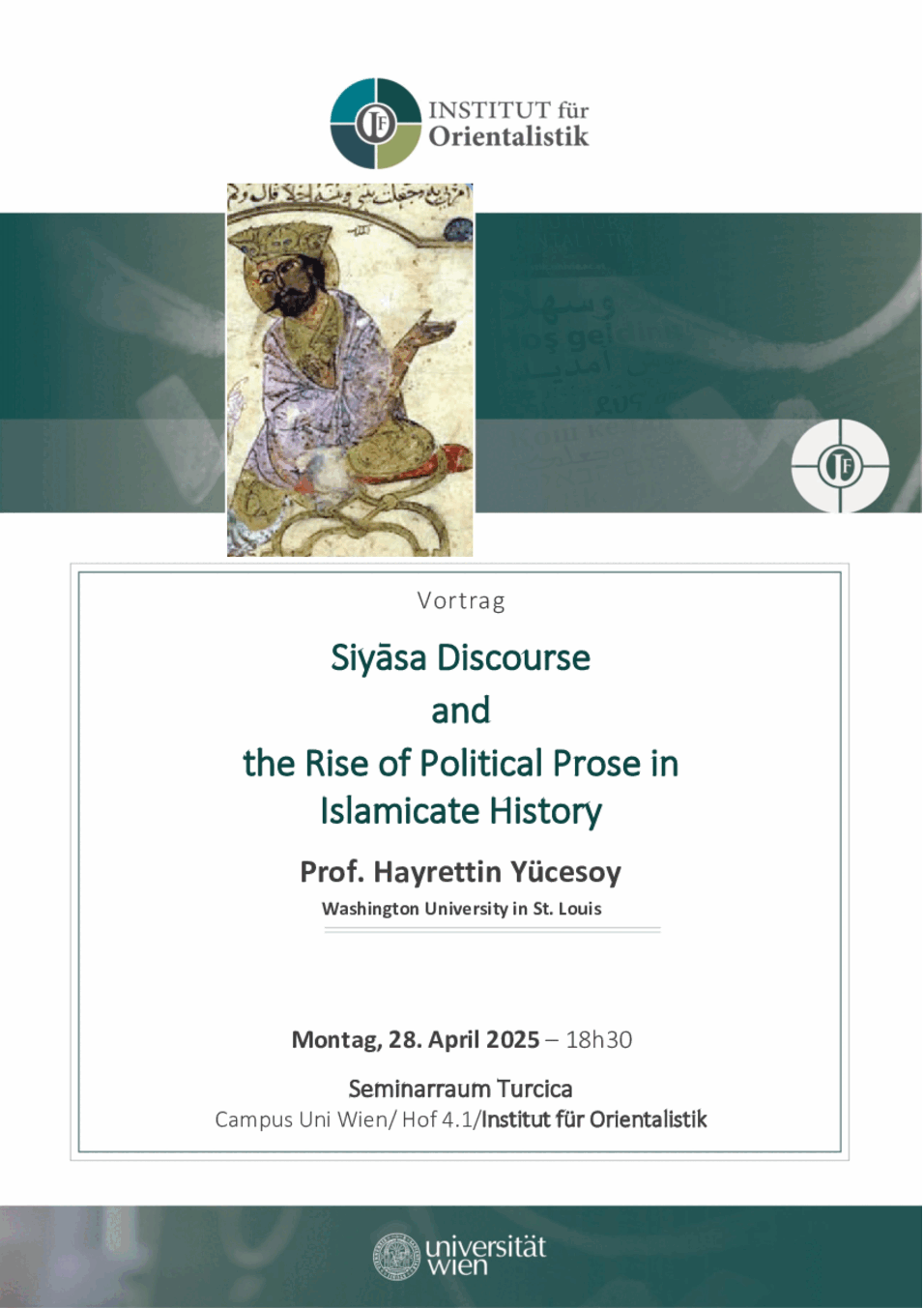Abstract: This talk explores the emergence of siyasa through the efforts of late Umayyad and early Abbasid lay bureaucrats who, in the eighth century, initiated a debate on politics within the emerging genre of literary prose. Often celebrated as "realists," these bureaucrats operated within the central administration, aiding Umayyad and Abbasid state-building while navigating the constraints of the prevailing discourse on the imamate. Pushing back against the ulema’s abstract, universal, and normative language, they articulated alternative political ideas that subtly reoriented the empire’s trajectory. Apprehensive of the ulema’s influence and deeply engaged in the practical challenges of governance, they critiqued prevailing views on governance, challenged dominant ulema perspectives, and proposed new directions for political practice in the empire. Their precarious social standing—as mawālī, descendants of the conquered non-Arab peoples, yet also integral to the ruling elite—afforded them a unique vantage point. This duality enabled them to draw upon the region’s long-standing imperial traditions to develop a hybrid political framework.
Bio: Hayrettin Yücesoy is a Professor of Middle Eastern History at Washington University in St. Louis. He holds a B.A. from Istanbul University and a Ph.D. from the University of Chicago. A historian specializing in the premodern Middle East, Yücesoy focuses on the Abbasid Empire (750–1258 C.E.), engaging with broader debates on empire, political messianism, social order, secularity, inter-imperial connections, and cross-cultural encounters. Over the course of his career, Yücesoy has published three monographs and numerous articles. His most recent book, Disenchanting the Caliphate: The Secular Discipline of Power in Abbasid Political Thought (Columbia University Press, 2023), examines the relationship between political thought and governance in the late Umayyad and early Abbasid period. Currently, he is completing a new monograph, On Good Governance: Two Discourses of Politics in Early Islam, which presents a critical Arabic edition and annotated English translation of two foundational political tracts composed for the Abbasid caliphs in the mid-eighth century. This work includes intellectual biographies of their authors and an interpretive essay on the caliphate.
Lecture: Siyāsa Discourse and the Rise of Political Prose in Islamicate History
04.04.2025

